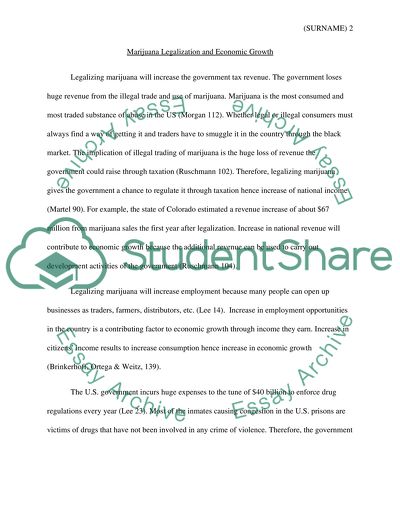Cite this document
(“Legalization of marijuana. How can it boost the U.S economy Research Paper”, n.d.)
Legalization of marijuana. How can it boost the U.S economy Research Paper. Retrieved from https://studentshare.org/social-science/1657796-legalization-of-marijuana-how-can-it-boost-the-us-economy
Legalization of marijuana. How can it boost the U.S economy Research Paper. Retrieved from https://studentshare.org/social-science/1657796-legalization-of-marijuana-how-can-it-boost-the-us-economy
(Legalization of Marijuana. How Can It Boost the U.S Economy Research Paper)
Legalization of Marijuana. How Can It Boost the U.S Economy Research Paper. https://studentshare.org/social-science/1657796-legalization-of-marijuana-how-can-it-boost-the-us-economy.
Legalization of Marijuana. How Can It Boost the U.S Economy Research Paper. https://studentshare.org/social-science/1657796-legalization-of-marijuana-how-can-it-boost-the-us-economy.
“Legalization of Marijuana. How Can It Boost the U.S Economy Research Paper”, n.d. https://studentshare.org/social-science/1657796-legalization-of-marijuana-how-can-it-boost-the-us-economy.


